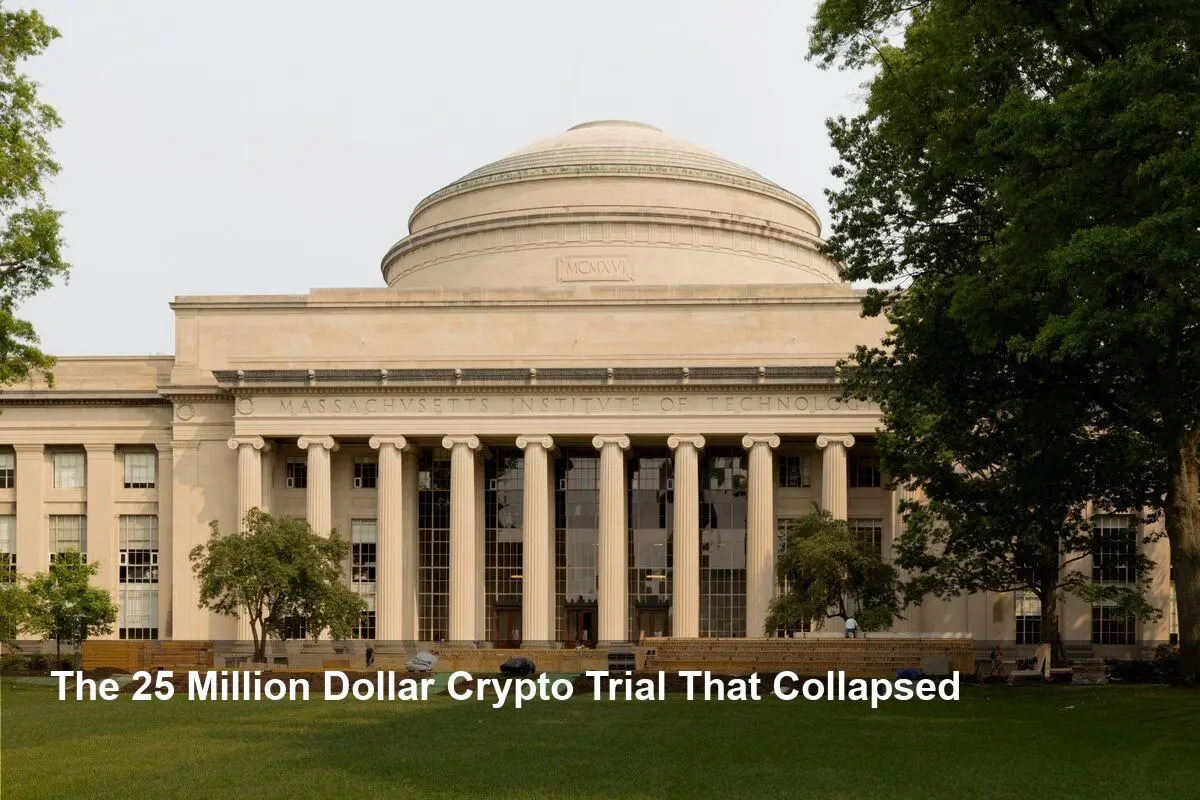- A federal judge has declared a mistrial in the high-profile fraud case against two MIT-educated brothers accused of stealing $25 million in cryptocurrency.
- The jury was unable to reach a unanimous verdict after three days of intense deliberations, citing the severe “emotional burden” of the case.
- This outcome is a significant setback for federal prosecutors attempting to establish legal precedents in the often-unregulated world of cryptocurrency trading.
- The brothers, Anton and James Peraire-Bueno, were accused of exploiting the Ethereum blockchain in a novel and sophisticated digital heist.
A Shocking End to a High-Stakes Crypto Trial
A highly technical and closely watched federal trial against two brothers from the Massachusetts Institute of Technology, accused of stealing approximately $25 million in cryptocurrency, has ended abruptly in a mistrial. US District Judge Jessica Clarke made the declaration on Friday after the jury, following a three-week trial, failed to reach a unanimous decision.
Jury Deadlock Cites “Emotional Burden”
After three days of deliberation, the jurors informed the judge that they were hopelessly deadlocked. In a note to Judge Clarke, they described the “emotional burden” they were under, revealing that half of them had broken down in tears during the process and some were suffering from sleepless nights. Despite being urged to continue, the jury’s clear distress led the judge to conclude that further deliberation would be futile.
Lawyers for the defendants, James Peraire-Bueno, 29, and his brother Anton, 25, had pushed for a mistrial. “There’s rarely a jury note that is more clear,” said Patrick Looby, a lawyer for James Peraire-Bueno. “This is a mistrial.”
The Heart of the Case: A ‘Sandwich Attack’ Exploit
The trial centered on a controversial but not explicitly illegal trading strategy known as a “sandwich attack.” This method uses bots to front-run and back-run a user’s transaction on the blockchain to profit from the price difference. Prosecutors alleged that the Peraire-Bueno brothers took this a step further.
A Novel Form of Theft?
The government argued that the brothers developed an elaborate plan to bait these trading bots and then used an “exploit” in open-source software to seize the millions of dollars the bots had invested. David Yakira, CEO of Savannah Technologies, one of the firms targeted, testified to the shock of the event. “You go to bed with $14 million, you wake up with nothing,” he said. Prosecutors framed it as a straightforward, modern-day bank robbery.
An Aggressive but Legitimate Strategy?
Conversely, the defense argued that their clients’ actions were fair game in an unregulated market. They contended that the brothers had simply developed a superior and legitimate, if aggressive, trading strategy. “The brothers should be celebrated, not vilified,” argued Daniel Marx, an attorney for Anton Peraire-Bueno.
A Setback for Crypto Regulation
The mistrial is a significant blow to prosecutors who have been trying to define the “rules of the road” in what is often described as the “Wild West of crypto.” The case was seen as a landmark effort to apply traditional fraud laws to complex blockchain activities. Federal prosecutors, who declined to comment on the ruling, now face the decision of whether to invest resources in a new trial against the brothers.
A Divided Community and an Uncertain Future
The crypto community remains divided over the case. Some cheered the brothers for turning the tables on controversial “sandwich attackers,” while others viewed their actions as blatant theft that undermines trust in the ecosystem. As lawyers and the defendants’ family—including their father, a prominent MIT professor—left the courtroom, the future of the case, and the regulatory questions it raised, hangs in the balance.
Image Referance: https://www.bloomberg.com/news/articles/2025-11-08/judge-declares-mistrial-in-mit-grad-brothers-fraud-case
